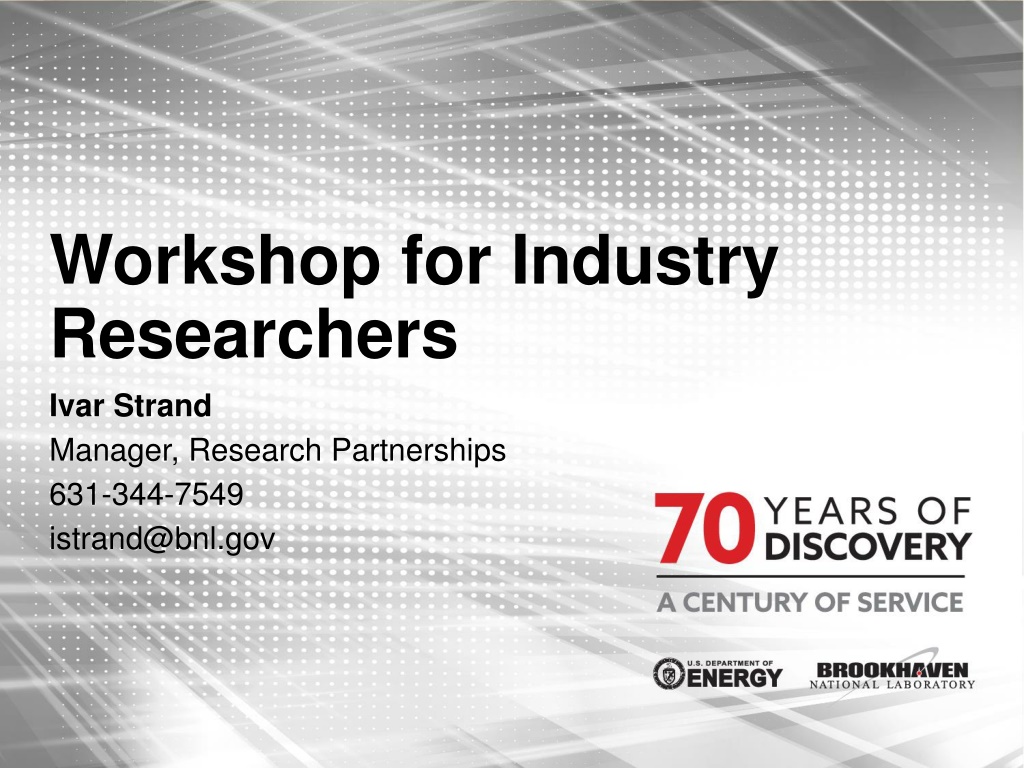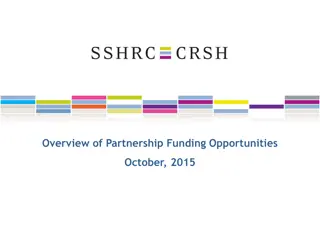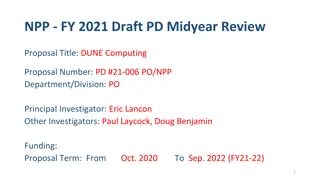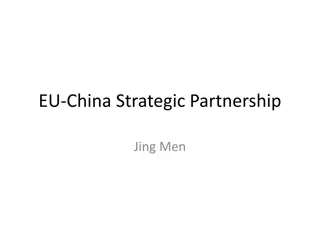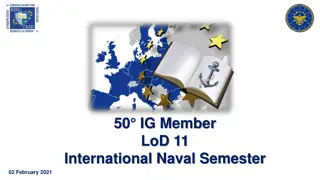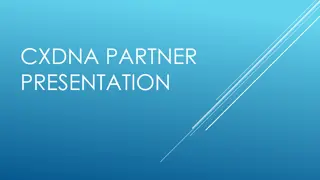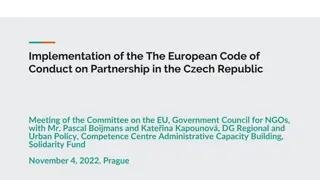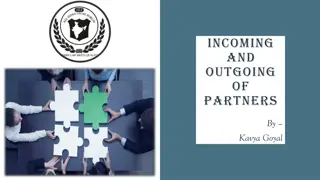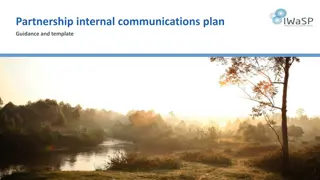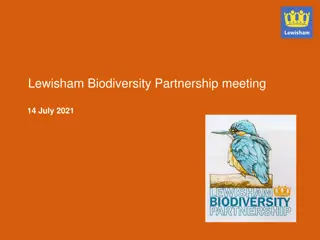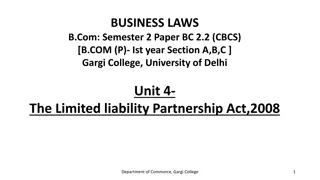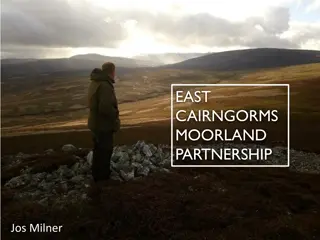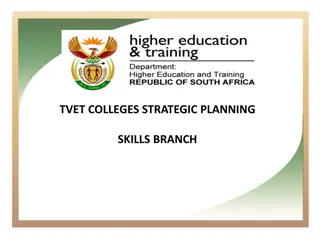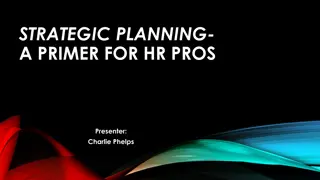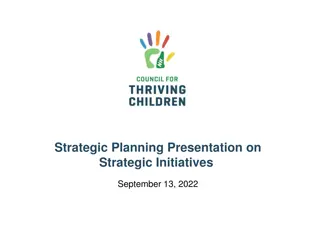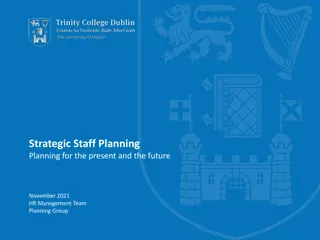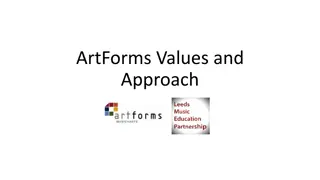Strategic Partnership Opportunities at BNL
Explore various partnering agreements available at BNL, including Cooperative Research and Development Agreements (CRADA), Strategic Partnership Projects, and Technical Service Agreements. Collaborate with industry, academia, and nonprofit organizations for joint research, development, and mission-related projects, benefiting from shared costs and intellectual property rights. Contact Ivar Strand and the Strategic Partnership Team to initiate fruitful partnerships.
- Partnership Opportunities
- Collaborative Agreements
- Research Projects
- Intellectual Property
- Strategic Partnerships
Download Presentation

Please find below an Image/Link to download the presentation.
The content on the website is provided AS IS for your information and personal use only. It may not be sold, licensed, or shared on other websites without obtaining consent from the author. Download presentation by click this link. If you encounter any issues during the download, it is possible that the publisher has removed the file from their server.
E N D
Presentation Transcript
Workshop for Industry Researchers Ivar Strand Manager, Research Partnerships 631-344-7549 istrand@bnl.gov
Strategic Partnership Team Ivar Strand, Manager Research Partnerships, istrand@bnl.gov, (631) 344-7549 Janet Morfopoulos, Research Partnerships Supervisor, Morfopoulos@bnl.gov, (631) 344- 6226 Alison Schwarz, Sponsored Research Administrator, aschwarz@bnl.gov, (631) 344-3428 Virginia Coccorese, Assistant Staff Specialist, vcoccorese@bnl.gov, (631) 344-2506
Types of Partnering Agreements Cooperative Research and Development Agreement (CRADA) Funds-In Agreement Strategic Partnerships Projects (SPP) Technical Services Agreement (TSA) Interagency Agreement (IAG) Agreements for Commercializing Technology (ACT)
Cooperative Research and Development Agreements (CRADA) CRADA program enables industry, academia, and nonprofit entities to collaborate with BNL for the purpose of conducting joint research and development activities Cost of conducting joint research is shared through contribution of personnel, equipment, services, facilities, and funds Rights to intellectual property generated under a CRADA are permissible. Partner receives first right to negotiate a license for new BNL IP that is developed under the CRADA in a field of use Commercially valuable information generated under the CRADA may be protected for up to 5 years Requirement for substantial U.S. manufacturing DOE approval is required
Strategic Partnership Projects (SPP) Work for Others Agreements WFO program enables non-federal sponsors to have BNL perform a defined scope of work that utilizes the unique capabilities of the Laboratory Sponsor covers the cost of all Laboratory work, including personnel and materials, to complete the statement of work Rights to inventions generated under a WFO may be available to the sponsor under DOE s class patent waiver Proprietary treatment of data is negotiable DOE approval is required
Technical Service Agreement (TSA) BNL performs mission-related, reimbursable work (private funding) Specialized or unique DOE facilities, services, or technical expertise (ex Tandem, NSRL) Generated information treated as proprietary when marked, partner s proprietary information can be protected Quick to execute for projects that meet certain parameters (Ideal for consulting, testing and evaluation) Terms are non-negotiable Less than $250,000 est. cost & 3 years of performance Not intended for R&D where project generated IP is expected 90-day advance payment
Interagency Agreement (IAG) Federal funding to perform work with another Federal Agency, non-DOE Partner to assist in implementing large federal projects Specialized or unique DOE facilities, services, or technical expertise Prime contract terms/gov t rights apply DOE field office negotiates agreement terms Signature approval by DOE required
Agreements to Commercialize Technology (ACT) DOE partnership mechanism Created in response to industry and stakeholders Support wider range of Industry-Lab Partnerships Complements WFO, CRADA and User Agreements Contractor can negotiate business-appropriate terms with third party clients in more flexible agreements Incentivizes labs/contractors to assume certain risks that US Government entities cannot assume Contractor may choose to accept and share some risk in doing work for and/or with clients Payment terms, project deliverables, milestones, etc.
